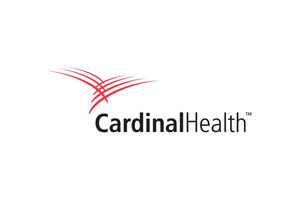Cardinal Health Foundation Develops Guidelines to Help Pharmacists, Health Care Professionals Host Medication Disposal Days
DUBLIN, Ohio, Sept. 20, 2011 /PRNewswire/ -- As part of its ongoing commitment to preventing prescription drug abuse, the Cardinal Health Foundation today announced the availability of new guidelines that help pharmacists and other health care providers understand the steps involved in hosting medication disposal days.
Prescription drug abuse is the second leading cause of accidental death in the U.S. and the leading cause of accidental death in 16 states plus the District of Columbia. Every day, nearly 2,500 youth aged 12-17 abuse a prescription pain reliever for the very first time(1). Medication disposal days can help curb these trends by providing community members with a safe, convenient, legally and environmentally sound way to dispose of unwanted medications.
In partnership with the Drug Enforcement Agency (DEA), local law enforcement, community partners and a large central Ohio health system, Cardinal Health has co-sponsored several medication take-back events near its headquarters in central Ohio. Combined, these medication disposal days have successfully collected and destroyed nearly 4,000 pounds of unused and expired medications. The Ohio Department of Health, Cardinal Health and other agencies have leveraged their collective experience in hosting these events to develop guidelines to help other interested organizations understand the steps involved in coordinating a drug take-back day.
"We've received a great response to our medication disposal days, and many of our retail pharmacy customers, in particular, have long been interested in tools that can help them understand how to host these sometimes complex events in their own communities," said Steve Lawrence, senior vice president of retail independent sales at Cardinal Health. "We hope our new guidelines will encourage more pharmacists and health care providers to work with the DEA and local law enforcement to provide their communities with safe ways to dispose of medications."
The new guidelines, which can be found at www.cardinalhealth.com/GenerationRx, include information on how to contact local partners, obtain necessary permits, and drive participation in medication disposal days. They also include tips on optimal timing and locations for these events, a list of needed supplies, and follow-up steps for how to share the results.
Preventing prescription drug abuse is one of the key strategic priorities of the Cardinal Health Foundation. In 2009, the Cardinal Health Foundation teamed up with The Ohio State University College of Pharmacy to develop two GenerationRx toolkits: comprehensive suites of materials designed to help health care providers, pharmacists, parents, teachers and other concerned citizens educate teen and adult audiences about the dangers of prescription drug abuse. These materials can be downloaded free of charge at www.cardinalhealth.com/GenerationRx.
About the Cardinal Health Foundation
The Cardinal Health Foundation supports local, national and international programs that improve health care quality and build healthy communities. The Cardinal Health Foundation also offers grants to encourage employee service to the community and works through international agencies to donate much-needed medical supplies and funding to those who need them in times of disaster. To learn more, visit cardinalhealth.com/community or visit us on Facebook at www.Facebook.com/CardinalHealthFoundation.
(1) National Survey on Drug Use and Health, 2008
SOURCE Cardinal Health
WANT YOUR COMPANY'S NEWS FEATURED ON PRNEWSWIRE.COM?
Newsrooms &
Influencers
Digital Media
Outlets
Journalists
Opted In





Share this article